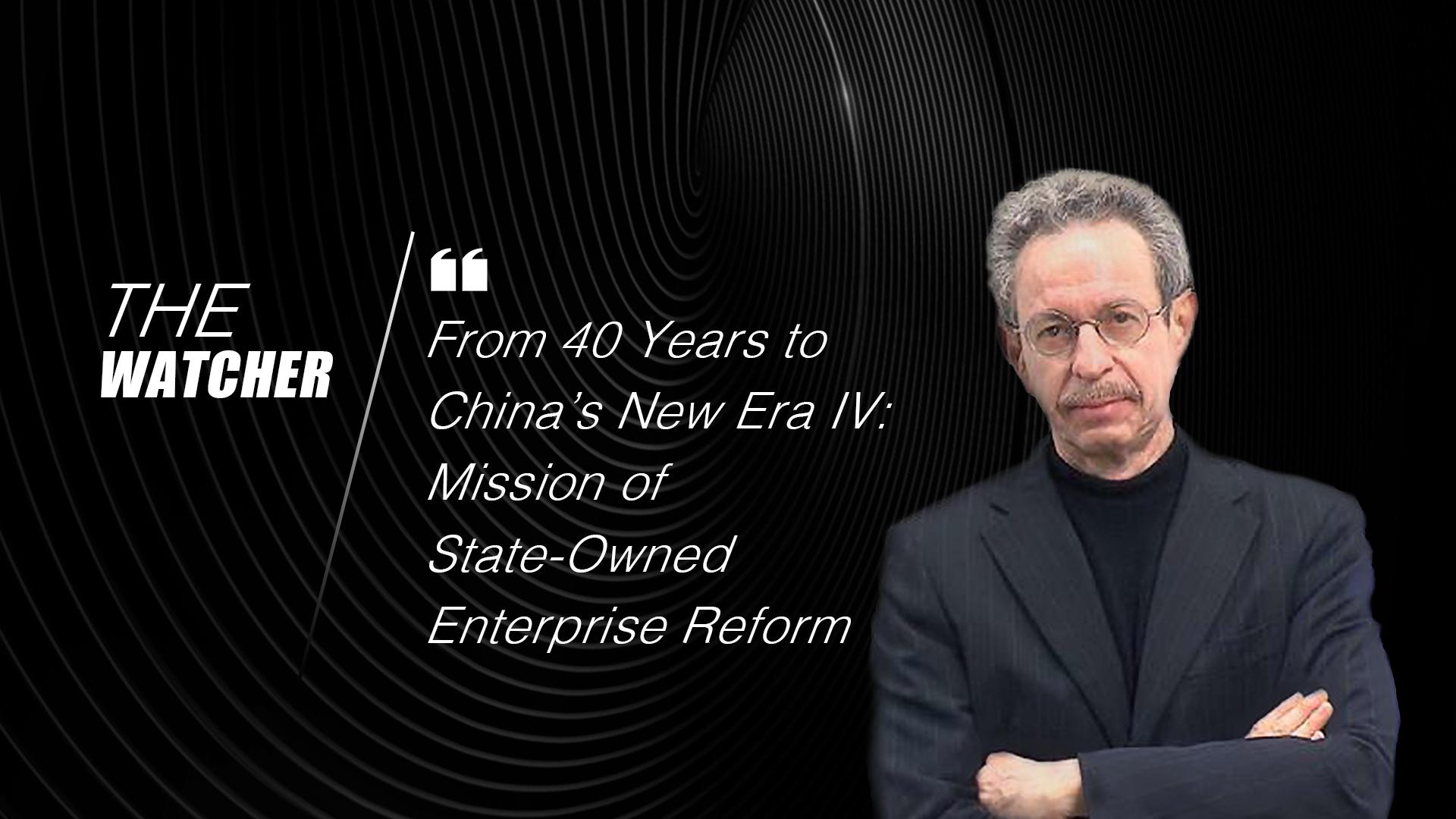
Opinions
20:43, 20-Nov-2018
From 40 Years to China’s New Era IV: Mission of state-owned enterprise reform
Updated
19:55, 23-Nov-2018
Robert L. Kuhn
03:55

In this 40th year of China's reform and opening up, the deepening reform of state-owned enterprises, SOEs – a critical factor of China's comprehensive economic transformation for the new era. What challenges lie ahead?
SOEs are now categorized in two sectors: a public service or strategic sector, where SOEs support government policies, such as national security or infrastructure construction, and are often natural monopolies; and a commercial or market sector, where SOEs should compete fairly with private companies. Political considerations will dominate the strategic sector, while financial performance should be the prime criterion of success in the commercial sector.
The key SOE reform is diversification of ownership, especially in the commercial sector: bringing in private capital and independent board oversight, though the state will still exercise ultimate control, especially in the strategic sector. Although the role and structures of SOEs have been long debated, and entrenched interest groups have long resisted change, there is now definitive direction. Chinese President Xi Jinping has made it radiantly clear that SOEs should become “bigger and stronger.”
There are multiple missions or objectives for SOEs that are deemed to be more important than traditional corporate criteria of financial performance and market competitiveness. Here are five:
1. President Xi has called SOEs "an important foundation of Communist Party of China (CPC) rule."
2. SOEs help justify China's socialist system.
3. SOEs can be rapidly mobilized in times of economic need; SOEs can be likened to macroeconomic levers, much like fiscal policy.
4. SOEs can focus substantial resources on innovation, developing future technologies of industrial significance, such as robotics or artificial intelligence, without worrying much about financial returns or even efficiencies.
5. As SOEs increase in scale, scope and power, they become domestic and then global corporate champions, which serves to build China's national strength and international influence, such as by supporting the Belt and Road Initiative.
In addition, the argument is made that by increasing the CPC's direct leadership of the governance of Chinese enterprises, particularly of SOEs, these mission-oriented, national objectives can be accomplished more efficiently and rapidly. There are questions, of course, about the coherence or internal consistency of these missions or objectives. For example, it is not clear that effective innovation is developed best in large enterprises or whether tighter controls create an innovation-friendly environment.
We also cannot ignore the impact of the anti-corruption campaign on SOEs. There is now common agreement that the market must play a “decisive role” in resource allocation, but how SOEs should continue to play a “dominant role” in commercial industries remains an economic and political challenge. What we know for sure is that SOE reform requires new thinking for the new era.
(If you want to contribute and have specific expertise, please contact us at opinions@cgtn.com.)

SITEMAP
Copyright © 2018 CGTN. Beijing ICP prepared NO.16065310-3
Copyright © 2018 CGTN. Beijing ICP prepared NO.16065310-3